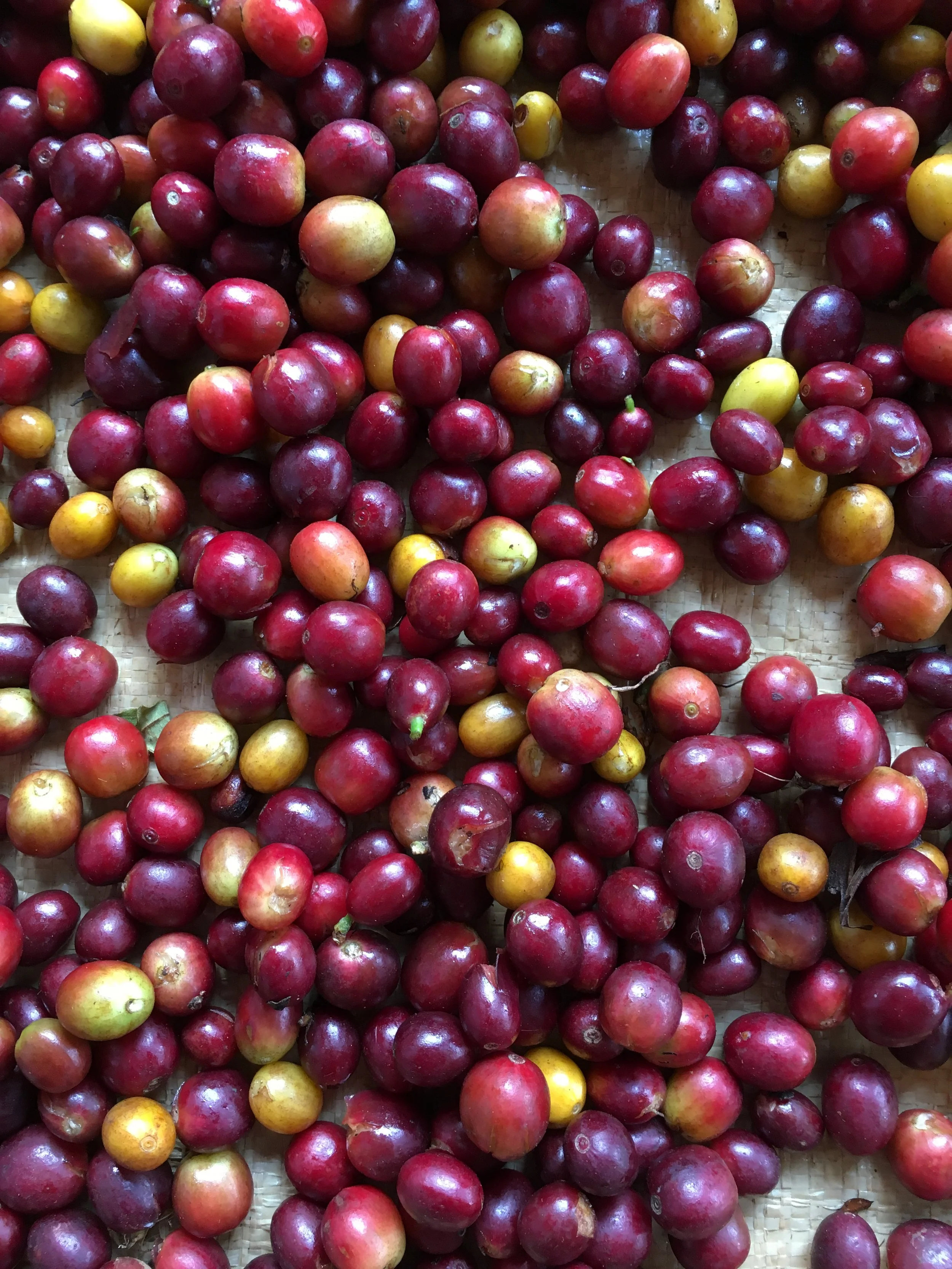
The ¡BioRevolution! Project
An exciting partnership with food co-ops to fund agriculture projects on coffee farms
Industrial plantation agriculture is a major contributor to climate change; ¡BioRevolution! coffee is an alternative to the industrial petrochemical agriculture model and all of its negative impacts. Small-scale farmers grow a significant portion of the world's food and are the primary stewards of the Earth's ecosystems. Purchasing Organic ¡BioRevolution! coffee contributes to Equal Exchange's network of citizen-consumers and farmers who are building a sustainable future for our planet and people.
Organic ¡BioRevolution! has a brand new recipe! This Full City roast is balanced and sweet with notes of vanilla, milk chocolate, honey, and brown sugar.
For every pound sold, Equal Exchange will contribute 50¢ to the ¡BioRevolution! Project fund.
Our goal is to contribute up to $25,000 annually to support:
soil health initiatives
farmer-to-farmer learning exchanges
climate adaptation strategies
Since 2021, we've raised over $90,000 by selling these coffees to support innovative farmer projects.
Featured Project
Honduras Farmer Exchange
Six days in Marcala, Honduras
La Fortaleza, a farmer-led grassroots biodynamic teaching farm in Marcala, Honduras, was the site of Equal Exchange's ¡BioRevolution! Project farmer exchange in 2025. Scholarship funds from the sale of Organic ¡BioRevolution! coffee allowed Equal Exchange's coffee farmer partners from Mexico, Guatemala, and Colombia to send delegates to this event. They gained and shared knowledge to improve soil health and climate resiliency. The project supported farmers learning, innovating, and sharing practices to improve the profitability and resiliency of their farms. Since 2021, the ¡BioRevolution! Project has funded two farmer exchanges at COMSA Co-op.
Workshops included topics like:
Pranic energy and nutrition • Collecting microorganisms from old growth forest • Mushrooms as living fertilizers • Making biofertilizers • The moon’s influence in biodynamic farming • Minerals and living molecules • Tour of COMSA’s progressive schools for farmers’ children • Ecotourism for income diversification • Beekeeping • Leadership roles for women
Each day we asked participants…
What have you learned from this exchange?
Why Soil Health is a Hot Topic
What if the key to healthier food, stronger crops, and a more sustainable planet lies just beneath our feet? Soil is like a plant’s digestive system: healthy soil hosts microbes (bacteria, fungi) that decompose organic matter into nutrients plants can absorb. When soil is biologically rich, plants become more resilient: they grow stronger, resist pests and disease better, and yield higher-quality crops.
With some biological know-how, farmers can learn to actively manage soil chemistry and biology (pH, nutrient ratios, microbial communities) to steer outcomes. This means deterring pests, attracting beneficial insects, and stimulating healthy crop growth, all with less reliance on costly chemical inputs.
When Equal Exchange Vice President Lynsey Miller gathered with coffee farmers from around Latin America at the Farmer Exchange in Marcala, Honduras, she completely evolved her appreciation of soil. The agronomists at COMSA highlighted the importance of healthy soil in maintaining ecological balance, supporting farmer livelihoods, and fostering resilient agricultural systems in the face of environmental challenges. And, they taught hands-on how to use the natural environment to manage the soil more effectively. In her article, The Soil Whisperers, Lynsey explains how three “ah-ha’s” garnered from these workshops changed her foundational understanding of soil.
Our supply chain is cooperative
For decades, Equal Exchange, a worker-owned co-op, has partnered with food coops across the country to strengthen our cooperative supply chain by connecting farmer co-ops to food co-ops. Why does this matter? Co-ops are uniquely structured to combine social and environmental justice with financial and democratic participation of farmer, worker, and consumer members. This coffee is a true manifestation of Cooperative Principle 6 and the global cooperative economy.















